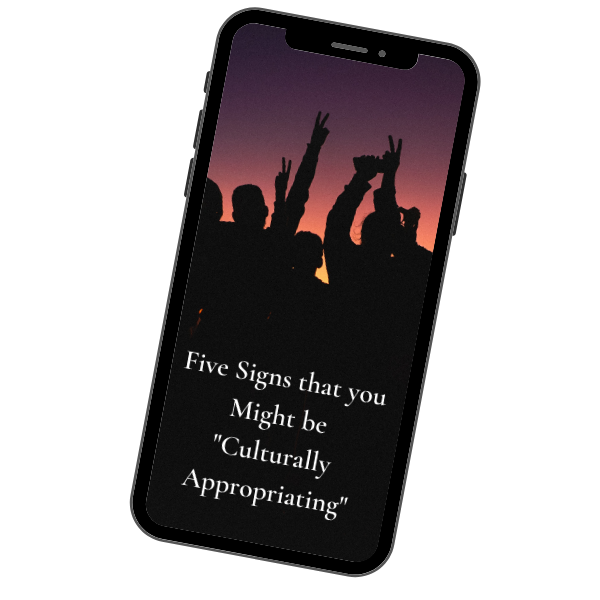Corporate Social Responsibility and Intellectual Property: Three Questions & Three Examples
I. What is Corporate Social Responsibility or CSR?
Corporate social responsibility is about business and human rights. It is about asking businesses to lead by “doing the right thing.” There is a strong business case for companies to take CSR seriously. Corporate social responsibility (CSR) is based on the idea is that businesses should respect human rights, which are based on recognition for the dignity of each human being. Countries have a legal obligations to protect human rights under international law, but what about large multinational corporations? When people think of business and human rights, they may think of stories of communities being destroyed by oil spills in Nigeria, factories with poor working conditions, or African “blood diamonds.” Examples of bad corporate behaviors and the resulting human harm triggered calls for corporations to implement socially responsible business practices.
How is CSR Defined?
CSR can be defined as actions that further some social good, even if they don’t have to do it. The CSR movement insists that corporations have both rights and duties within international law and should be good global citizens. It encourages corporations to respect and promote human rights, even if the law does not require them to do so. The core principles behind CSR can be found in the 2011 United Nations Guidelines on Business and Human Rights. This report is also commonly referred to as “the Ruggie Report.”
What is the Responsibility?
Corporations have a responsibility to respect human rights as part of a global standard. This means that corporations should avoid human rights violations. If their activities violate human rights, they should take responsibility for their actions and fix the harm that was caused. Most countries in the world have signed human rights agreements so they are supposed to respect and enforce human rights because they are the parties to various international agreements.
But private companies don’t have to protect human rights unless they have some obligation under domestic law. Still, given the corporate wealth and influence, it is essential that corporations, and not just governments, promote respect for human rights. So, what happens if a company is operating in a country that does not respect human rights? Corporations can choose respect and encourage human rights, even if governments do not. We want and expect companies to “do the right thing.”
What does it mean for a Business to “do the right thing?”
What it means for a company to “do the right thing” is not obvious and can change depending on the circumstances. As it relates to CSR, it means that we expect corporations to change their profit-maximizing behaviors if their actions are harmful to human well-being. It is true that the goal of every for-profit business is to make money and that large publicly held companies have obligations to their shareholders. But, we also want companies to put people first. CSR is about businesses respecting human rights.
Why Corporations?
The global public increasingly expects corporations to be socially responsible. This is important because some multinational corporations have more financial resources than small developing countries. For example, according to one study, Apple and Amazon have more wealth than ninety percent of the world’s countries! This gives large wealthy corporations significant power and influence, which is why corporate conduct matters.
The power imbalance is even more stark when you compare large corporations to developing countries. Even when it is not a question of resources, we have increasingly seen how the decisions of companies such as Facebook and other social media companies can influence public discourse. Large multinational companies have the potential to make positive contributions in the world. The question then becomes whether these companies are helping or harming.
II. What does Corporate Social Responsibility have to do with Intellectual Property?
When there are clear human rights violations that threaten human life, health, or basic freedoms it is easy see the role of CSR. It is less obvious that intellectual property (IP) has anything to do with CSR. CSR does not normally make one think of intellectual property (IP) rights, such as patents, copyrights, and trademarks. But being socially responsible goes beyond avoiding human rights violations. It also means taking steps to respect human rights, even if there is no clear legal obligation. In this regard, there is much room for companies to use their IP rights to promote human rights and human flourishing.
How IP can Affect Human Well Being
The effects of IP rights on human well-being have become a global issue. This is because IP standards have been harmonized in different countries through the World Trade Organization agreement on IP. Since most countries in the world are members of the WTO, they must include certain levels of IP protection in their laws. IP rights—such as copyright, trademarks, geographical indications, and patents—can help incentivize creation but they can also limit access to knowledge, culture, and medicines. For example, copyright can limit access to educational and cultural materials; trademarks can be used to disseminate messages that promote racial stereotypes; and the lack of protection for intergenerational indigenous cultural works can lead to allegations of biopiracy.
Further, CSR is often seen as a good for corporate branding, but with little actual commitment. This is why there is a shift to focus more on measurable Environmental, Social, and Governance factors (“ESG”). But CSR and ESG are related. Socially responsible IP is not about using IP to brand oneself as a good corporate citizen, although this may be one of the incentives and one of the effects. IP rights, although it is not their main purpose, can be a force for social good.
III. Three Examples of Socially Responsible IP
Socially responsible IP is not a “one size fits all.” It does not mean companies should not protect their IP rights or that they should make everything available for free. Whatever it looks like in practice, it should include considerations about whether one is using their IP rights to contribute to improving the human condition. That is the “doing good” even if the law does not require it.
Patents and Health
One might argue that any innovations in the health field, such as patented medicines, are improving the human condition. But this is only true if the medicines are accessible and available to those who need them. For example, sometimes companies will pledge not to enforce patent rights so that the public can enjoy the benefits. During the Covid-19 pandemic, Moderna made such a commitment, or “patent pledge.” This is a voluntary commitment, but it is an example of prioritizing human well-being.
Trademarks and Culture
Socially responsible trademarks could include taking measures to avoid racist marks, even though such marks are permitted by the law. Responding to a change in public sentiment that the name “Redskins” is derogatory to Native Americans, the Washington Redskins football team changed their name to the Washington Commanders.
Copyright and Education
In the realm of copyright, it could be taking steps to make sure people have adequate access to educational materials and respecting indigenous cultural heritage and traditional expressions.
IV. Conclusion
These are just a few examples, but there are many more ways that companies can use and manage their IP rights to promote human flourishing. Intellectual property rights incentivize creation and innovation. In addition, IP rights can be a force for good. That is what socially responsible intellectual property is about.






